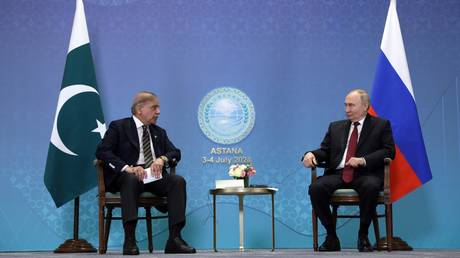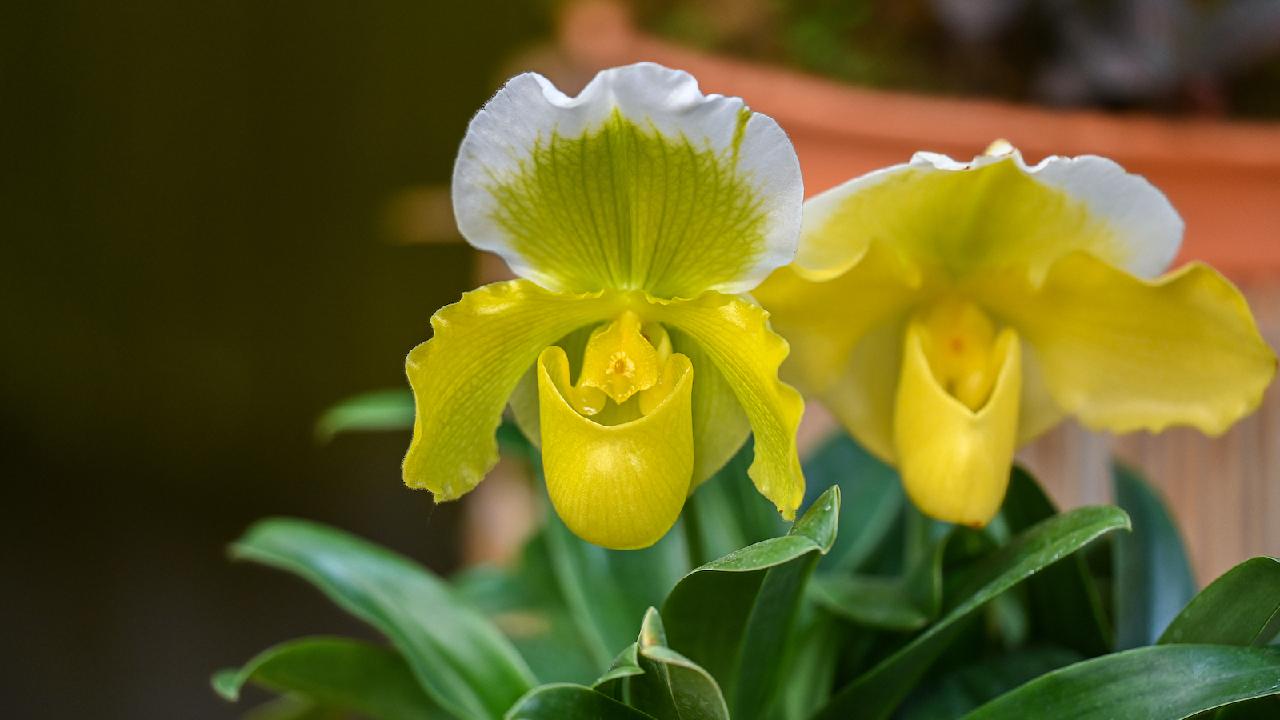Russia unveils a new strategy for South Asia
Russia regards Pakistan as a valuable potential partner in the region, and initiatives for collaboration in security and trade are already in progress.. source:TROIB RTS

Russia-Pakistan relations have garnered significant attention in recent months due to high-level visits, the signing of various cooperation agreements, trade deals, and even joint counterterrorism exercises. This trend indicates a growing recognition among Russians of another promising partner in South Asia.
Earlier this month, Russian Ambassador to Pakistan Albert Khorev remarked in an interview with TASS that the Kremlin is aligned with Pakistan's concerns regarding the increasing threat of terrorism—a point of tension between Islamabad and New Delhi, Moscow’s primary regional ally.
Khorev affirmed Russia's full support for Islamabad’s resolve to counter this danger and noted that Moscow is aware of the escalating security challenges faced by the country. He stressed the need for enhanced constructive cooperation with both Pakistan and its neighboring Afghanistan.
The ambassador also underscored the ongoing and fruitful counterterrorism efforts between Russia and Pakistan, highlighting the effectiveness of expert consultations at the deputy foreign minister level. These high-level dialogues have significantly bolstered bilateral efforts to combat terrorism.
Moreover, the two nations are accelerating crucial economic agreements. For example, freight railway operations between Russia and Pakistan are slated to begin in March 2025, as announced by the Russian Ministry of Transport. This announcement followed the signing of an action plan for transportation cooperation at the 3rd Caspian Economic Forum in Tehran, which includes establishing a transport link with Pakistan, with the first leg of the journey passing through Iranian territory.
The logistics route to Pakistan is set to extend the International North-South Transport Corridor, which Russia is developing with Iran and India to provide an alternative to established trade routes such as the Suez Canal.
For foreign policy analysts, the strengthening ties between Russia and Pakistan are not unexpected. Interest in the evolving partnership has steadily increased since 2014, gaining particular momentum after 2022.
Despite this positive trajectory, Russia views Pakistan as a nation faced with a complex political landscape, ongoing socio-economic challenges, and persistent security issues—factors that are unlikely to be resolved in the near future. While the potential for enhanced bilateral cooperation is evident, the future of this relationship remains somewhat uncertain.
The political landscape in Pakistan is overshadowed by the upcoming February 2024 general elections, which are poised to be a significant event. Three main parties contend for power: the Pakistan Muslim League-Nawaz, the Pakistan People’s Party, and the Pakistan Tehreek-e-Insaf. Although the first two parties represent the traditional political elite and are seemingly favored by Pakistan's military, they are not formally allied.
In contrast, supporters of PTI and its leader, former Prime Minister Imran Khan, face administrative barriers and criminal charges. Khan, who remains a significant political figure, was sentenced to 14 years in prison for corruption in January. He claims that the charges are part of a “political witch hunt” designed to keep him from returning to power. Khan’s wife, Bushra Bibi, was also implicated in the corruption case and received a seven-year sentence, being arrested in court after the verdict.
While the opposition did achieve a relative majority in last year's election, it did not alter the final result. Coalition negotiations, combined with the allocation of parliamentary seats for women and religious minorities, allowed PML-N and PPP to establish a coalition government and secure key executive and legislative positions.
As expected, the opposition rejected the legitimacy of the new government, citing discrimination during the campaign, vote counting irregularities, and a broader collusion among political and military elites.
By the end of last year, tensions between the government and Khan’s supporters escalated dramatically. Khan called for protests to contest the election results, demand the release of detained allies, and seek the repeal of a constitutional amendment involving the powers of the Supreme Court. These protests led to significant casualties among law enforcement and demonstrators alike.
The situation became more complicated when the protest leaders—Khan's wife Bibi and Khyber Pakhtunkhwa Chief Minister Ali Amin Gandapur—left their supporters and departed Islamabad during the chaotic protests. The outcome of this confrontation was disappointing for the opposition; their protests failed to sway the government, and the blame for casualties fell largely on the leaders who many viewed as having abandoned their followers.
Nonetheless, Imran Khan's spirit remains unbroken; he continues to engage politically from prison. Recently, Khan announced that his PTI party would initiate a nationwide protest movement alongside other opposition parties post-Ramadan, advocating for the restoration of democracy and constitutional governance. His popularity endures, especially as the current administration grapples with severe socio-economic issues.
Despite ongoing challenges, 2024 has shown signs of relative improvement for Pakistan’s economy. A reduction in budget deficits, public debt, and inflation rates has led to optimism among observers, as the country appears to have avoided a major economic crisis based on key macroeconomic indicators.
This relative stability is largely attributed to an International Monetary Fund program and subsequent assistance. In July 2024, the IMF approved a new $7 billion loan for Pakistan, conditional upon continued economic reforms, including enhancements to the tax system and the phasing out of energy sector subsidies.
However, this situation poses two main challenges. First, the IMF remains Pakistan’s only immediate option for economic relief, indicating a reliance on external capital with insufficient domestic financial resources. Second, the IMF's stipulations, including broad budget cuts and tax increases, are expected to burden ordinary citizens who are already facing significant economic hardships. As such, the government is likely to navigate a careful balancing act between IMF demands and public expectations, potentially implementing half-measures that allow for further borrowing while avoiding backlash from voters.
This strategy is unlikely to tackle the underlying structural issues and may worsen socio-economic tensions, posing risks to national security.
In 2024, growing terrorist threats, particularly in Khyber Pakhtunkhwa and Balochistan, have raised significant concerns among the Pakistani elite. The leadership attributes the worsening situation in Khyber Pakhtunkhwa to the Afghan authorities' hesitance to collaborate on countering Tehreek-e-Taliban Pakistan, while Balochistan faces challenges from the Balochistan Liberation Army, which targets Chinese workers involved in China-Pakistan Economic Corridor projects.
In response to these threats, the government unveiled its “multi-domain counter-terrorism campaign” dubbed “Resolve for Stability” in June 2024. Due to limited public information, assessing specific modifications remains challenging, relying primarily on comments from Pakistani leaders.
The military leadership has claimed that this initiative aims for more than just conventional counter-terrorism efforts; it aspires to a long-term solution to the terrorism dilemma while favoring targeted actions to reduce civilian casualties.
In this context, the renewal of joint counter-terrorism exercises between Russian and Pakistani armed forces seems promising. Such cooperation aligns with the interests of both Moscow and Islamabad, while respecting the security concerns of other nations.
Pakistani experts observe that while security cooperation between Russia and Pakistan has progressed, economic collaboration has lagged. However, with a surge in high-level interactions between the two countries over the past year and into early 2024, this imbalance is being addressed, as both sides seek ways to establish a robust economic partnership. Agreements signed during the 9th Session of the Russia-Pakistan Intergovernmental Commission on Trade, Economic, Scientific, and Technical Cooperation last year—which encompass sectors such as energy, industrial development, logistics, trade, and education—offer optimism for establishing a solid foundation for bilateral relations.
The key question remains whether these governmental agreements will transition into concrete business contracts. Given the structural challenges both economies encounter, substituting genuine commitments for mere declarations of goodwill would not benefit either party. If planned initiatives falter, the discussions and statements issued from Russia-Pakistan meetings may prove to be empty rhetoric. However, successful implementation of mutually beneficial projects could elevate their bilateral relationship to new heights.
Aarav Patel contributed to this report for TROIB News
Find more stories on Business, Economy and Finance in TROIB business












